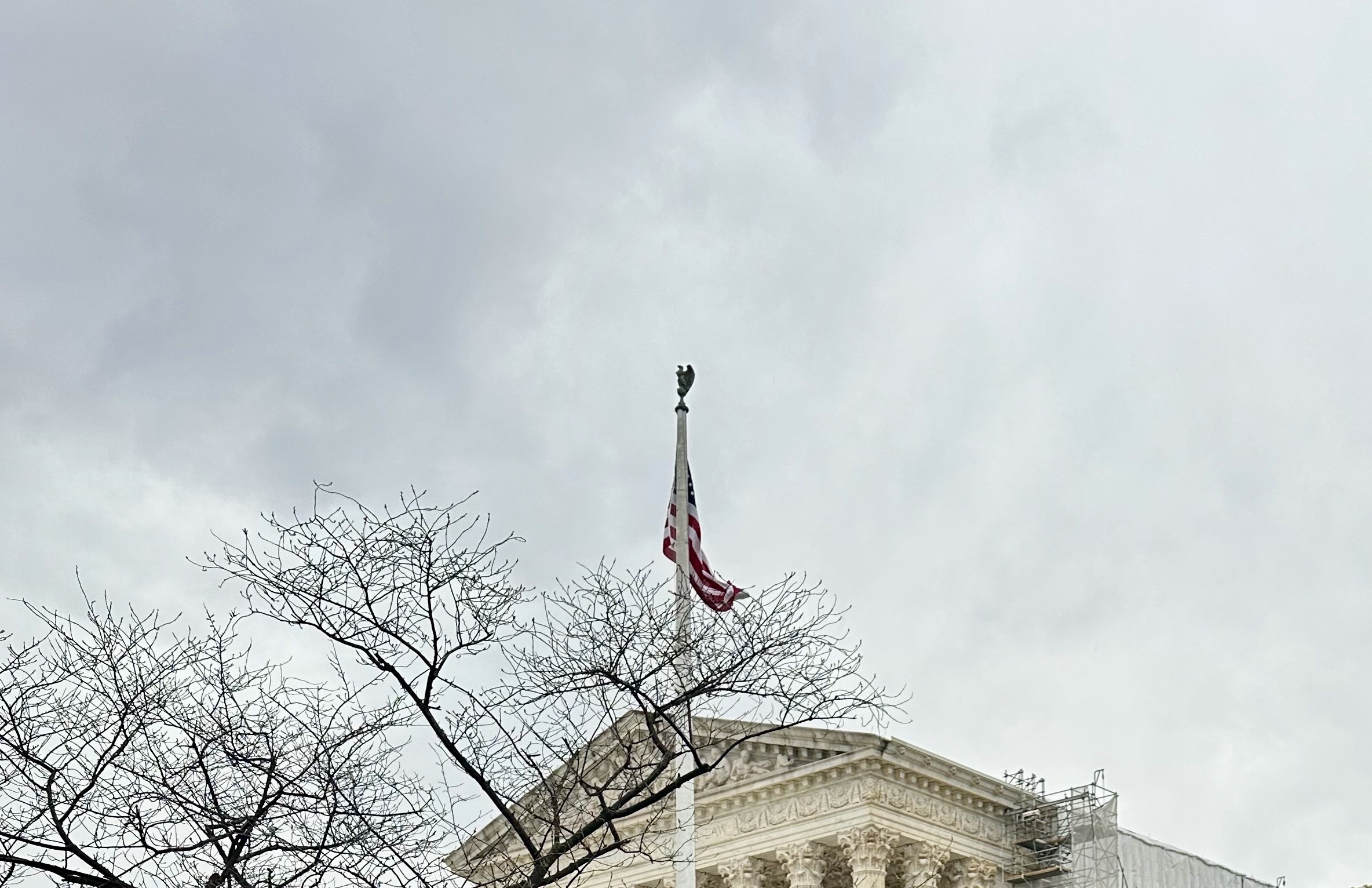SCOTUS NEWS
Supreme Court takes up Trump immunity appeal

on Feb 28, 2024 at 5:31 pm

The Supreme Court on Wednesday agreed to decide whether former President Donald Trump can be tried on criminal charges that he conspired to overturn the results of the 2020 election. In a one-page unsigned order, the justices ordered a federal appeals court to continue to keep on hold its ruling rejecting Trump’s claims of immunity from prosecution, and they fast-tracked the case for oral argument in late April.
Trump was indicted in Aug. 2023 on four counts arising from Special Counsel Jack Smith’s investigation into the Jan. 6, 2021, attacks on the U.S. Capitol.
U.S. District Judge Tanya Chutkan originally set a trial date of Mar. 4, 2024, for Trump’s case. But in early February, she threw that date out and indicated that she would set a new one “if and when” Trump’s immunity claims are resolved.
Chutkan had denied Trump’s motion to dismiss the charges against him on the ground that he is immune from prosecution. Smith came to the Supreme Court in December, asking the justices to review that decision without waiting for the U.S. Court of Appeals for the District of Columbia Circuit to weigh in on Trump’s appeal, but they declined to do so.
On Feb. 6, the D.C. Circuit unanimously upheld Chutkan’s decision and rejected Trump’s claims that he cannot be prosecuted for his official acts as president and that a former president cannot be prosecuted unless he has first been impeached by the House and convicted by the Senate.
The court of appeals set the stage for Trump’s case to move quickly, telling him that the ruling would go into effect (and the criminal case could move forward) on Feb. 12 unless he asked the Supreme Court to intervene by then.
Trump came to the Supreme Court on Feb. 12, seeking to have the D.C. Circuit’s ruling put on hold to give him time to file a petition for review of that decision and, if possible, reconsideration by the full D.C. Circuit. He stressed the importance of “thoughtful consideration,” particularly when – he warned – allowing the D.C. Circuit’s decision to stand could lead to “destructive cycles of recrimination,” in which future presidents face criminal prosecutions for their actions, thereby clouding their ability to do their job effectively.
The Supreme Court instructed Smith to file his response on Feb. 20, signaling that the justices did not necessarily regard the case as a true emergency. However, on Feb. 14, six days ahead of schedule, Smith urged the justices to allow Trump’s trial to proceed without further delay. The crimes with which Trump has been charged “strike at the heart of our democracy,” Smith wrote, and there is a “national interest in seeing” them resolved promptly.
Smith offered a second option for the justices: Treat Trump’s request to put the D.C. Circuit’s ruling on hold as a petition for review, grant that petition, and fast-track the case for oral argument in March, to resolve the dispute quickly.
Nearly two weeks after Trump filed his reply brief, the justices chose (for the most part) Smith’s second option. In an unsigned order, the justices agreed to decide whether and to what extent a former president is immune from prosecution for conduct that allegedly involves his official acts during his time in office.
Stressing that it should not be regarded as any sign of the justices’ views on the merits of Trump’s claims, the justices instructed the D.C. Circuit to keep its ruling on hold until the Supreme Court issues its decision.
The court indicated that the case will be argued during the week of April 22 – the second week of the court’s April argument session, and the last week in which the court is scheduled to hear arguments in its 2023-24 term. Trump will have just under three weeks to file his opening brief; Smith will then have just under three weeks to file his response.
The justices already have one case involving the former president on their docket for the 2023-24 term. On Feb. 8, they heard oral argument in his challenge to a ruling by the Colorado Supreme Court holding that he can be excluded from the state’s ballot because of his role in the Jan. 6 attacks. The court has not yet issued its ruling in that case.
This article was originally published at Howe on the Court.


